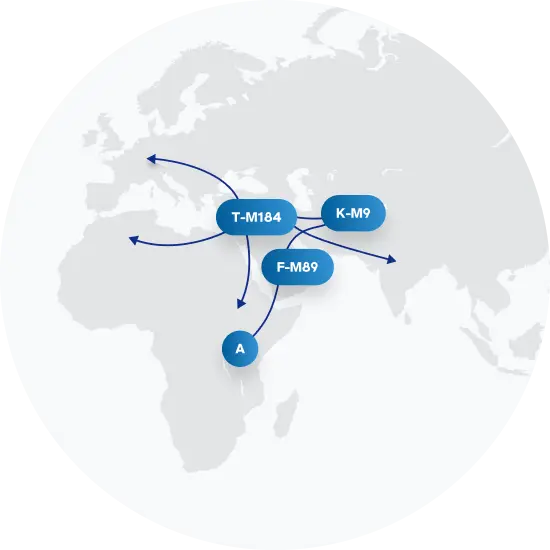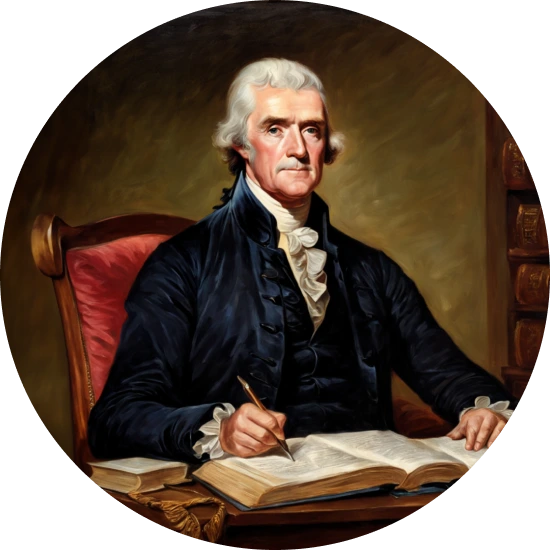Explore the Family Name Fitch
How common is the last name Fitch in the United States?
Based on data from the Decennial U.S. Census, the popularity of the surname Fitch has seen a modest decrease over the span of a decade. In 2000, Fitch was ranked as the 1,753rd most popular surname in the United States, but by 2010 it had slipped to the 1,885th spot, marking a drop of 7.53%. However, the total count of individuals bearing the Fitch surname increased slightly from 18,740 in 2000 to 19,060 in 2010, a growth of 1.71%. The proportion of the population with this surname per 100,000 people also saw a slight decrease from 6.95 to 6.46 during the same period.
| 2000 | 2010 | Change | |
|---|---|---|---|
| Rank | #1,753 | #1,885 | -7.53% |
| Count | 18,740 | 19,060 | 1.71% |
| Proportion per 100k | 6.95 | 6.46 | -7.05% |
Race and Ethnicity of people with the last name Fitch
Moving onto ethnicity, the Decennial U.S. Census data reveals some interesting shifts in the ethnic identity associated with the surname Fitch between 2000 and 2010. The White group saw a small decline of 2.75%, dropping from 86.20% to 83.83%. On the other hand, the Hispanic representation nearly doubled, showing an increase of 71.74%, although they still only make up a small proportion of individuals with the Fitch surname at 3.16% in 2010. Meanwhile, the proportion of Black individuals with the name Fitch experienced a marginal increase of 2.51%, moving from 8.75% to 8.97%. The Asian/Pacific Islander demographic also saw an increase, growing by 17.02% over the decade, while those identifying as having two or more races made the biggest leap with a 65.04% increase. The American Indian and Alaskan Native group was the only one to see a decrease, dropping by 3.95%.
| 2000 | 2010 | Change | |
|---|---|---|---|
| White | 86.2% | 83.83% | -2.75% |
| Black | 8.75% | 8.97% | 2.51% |
| Hispanic | 1.84% | 3.16% | 71.74% |
| Two or More Races | 1.23% | 2.03% | 65.04% |
| American Indian and Alaskan Native | 1.52% | 1.46% | -3.95% |
| Asian/Pacific Islander | 0.47% | 0.55% | 17.02% |
Fitch ancestry composition
23andMe computes an ancestry breakdown for each customer. People may have ancestry from just one population or they may have ancestry from several populations. The most commonly-observed ancestry found in people with the surname Fitch is British & Irish, which comprises 49.9% of all ancestry found in people with the surname. The next two most common ancestries are French & German (26.2%) and Scandinavian (5.7%). Additional ancestries include Eastern European, Ashkenazi Jewish, Italian, Spanish & Portuguese, and Nigerian.
Ready to learn more about your ancestry? Get the most comprehensive ancestry breakdown on the market by taking our DNA test. Shop 23andMe
| ANCESTRY BREAKDOWN | COMPOSITION |
|---|---|
| British & Irish | 49.9% |
| French & German | 26.2% |
| Scandinavian | 5.7% |
| Other | 18.2% |

Possible origins of the surname Fitch
Your DNA provides clues about where your recent ancestors may have lived. Having many distant relatives in the same location suggests that you may all share common ancestry there. Locations with many distant relatives can also be places where people have migrated recently, such as large cities. If a large number of individuals who share your surname have distant relatives in a specific area, it could indicate a connection between your surname and that location, stemming from either recent ancestral ties or migration.
Based on 23andMe data, people with last name Fitch have recent ancestry locations in the United Kingdom of Great Britain and Northern Ireland and Ireland.
| RECENT ANCESTRY Location | Percentage |
|---|---|
| Greater London, United Kingdom | 86.10% |
| Glasgow City, United Kingdom | 86.10% |
| West Midlands, United Kingdom | 85.90% |
| Merseyside, United Kingdom | 85.90% |
| West Yorkshire, United Kingdom | 85.90% |
What Fitch haplogroups can tell you
Haplogroups are genetic population groups that share a common ancestor on either your paternal or maternal line. These paternal and maternal haplogroups shed light on your genetic ancestry and help tell the story of your family.
The top paternal haplogroup of people with the surname Fitch is T-P322, which is predominantly found among people with European ancestry. Haplogroup T-P322 is descended from haplogroup T-M184. Other common haplogroups include T-M70 and R-CTS241, which are predominantly found among people with European and European ancestry. Other surnames with similar common haplogroups are: Mann, John, Price, Smith, Thomas, Allen, Thompson, Lewis, King, Reese.
The most common maternal haplogroups of people with Fitch surname are: H1, T2b, H. These most commonly trace back to individuals of European ancestry.
 Paternal Haplogroup Origins T-M184
Paternal Haplogroup Origins T-M184
Your paternal lineage may be linked to Thomas Jefferson
Studies in 1998 and 2007 found that Thomas Jefferson, the third President of the United States, belonged to haplogroup T-M70. This discovery lends support to the notion that Jefferson was the father of Eston Hemings Jefferson, who also belonged to haplogroup T-M70, and who was the last son of Thomas Jefferson's slave Sally Hemings. However, it is also possible that Thomas Jefferson's brother Randolph, or one of Randolph's five sons, was the father of Eston Hemings Jefferson, because all of the Jefferson men share the same haplogroup. Though the T-M70 haplogroup is of Asian origin and is more common in Asia and East Africa than Europe, Jefferson came from an indigenous European branch of T-M70.
Your maternal lineage may be linked to the nomadic Tuareg of the Sahara
Though haplogroup H1 rarely reaches high frequencies beyond western Europe, over 60% of eastern Tuareg in Libya belong to haplogroup H1. The Tuareg call themselves the Imazghan, meaning “free people.” They are an isolated, semi-nomadic people who inhabit the West-Central Sahara and are known today for a distinctive dark blue turban worn by the men, and for their long history as gatekeepers of the desert.How did women carrying H1 make it all the way from western Europe to this isolated community? They likely migrated from Spain across the Strait of Gibraltar into Morocco after the Last Ice Age, where they were assimilated into the Berbers of the Mediterranean coast. Then, about 5,000 years ago, the Sahara shifted from a period of relative habitable conditions to its dramatically arid desert environment. This shift may have caused migrations throughout the Sahara, prompting the ancient Tuaregs to meet and mingle with the Berbers, bringing H1 lineages into their population.

What do people with the surname Fitch have in common?
Spoiler alert: it's complicated. People with the same last name are usually no more genetically similar than a randomly sampled group of people from the same population. That said, people with the same surname are more likely to have similar ancestries than randomly sampled individuals. The reason is the tendency of people with similar cultural or geographical backgrounds to preferentially mate with one another. That's why people who share a surname may be more likely to share traits and tendencies in common than people within the general population. Check out the percentages below to see the prevalences of tastes, habits, and traits of people with your surname compared with prevalences among 23andMe users.
Preferences
Traits
Habits
Wellness
Are health conditions linked to the last name Fitch?
The short answer is that, if there is an association between surname and health, it's usually more about your ancestry than your name. Individuals with a given surname are no more genetically similar than the general population but often have similar ancestries. The populations of people associated with those shared ancestries often have sets of genetic variations, also known as alleles, in common. Some of those alleles are associated with a greater likelihood of developing certain diseases.
Disease variant frequency by ancestry
Disease allele frequencies in populations associated with the surname Fitch are shown below. Important Note: not everyone with a disease allele will develop these health condition
























